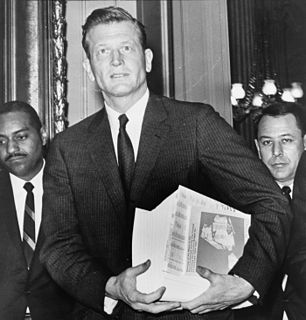A Quote by Alex Steffen
It is very possible to have lives that are just as prosperous, and nicer, that use 5 percent of the fossil fuels and virgin materials we do now. But if we're living anything like the average McMansion-ite, SUV-driving suburbanites, there's simply no way that can be powered in a climate-friendly way.
Related Quotes
We should certainly not be perpetuating further harm to others or to the environment. Suppose that workers at ExxonMobil are trying to unionize. We have two choices: to help them improve their lives, or to keep away so that their lives will be worse. Neither choice has any effect on use of fossil fuels. So radical organizers can both help them unionize and improve their lives, and convince them to find a different way to survive and work for ending the use of fossil fuels.
The economic system that the United States has is an evil empire. It's an economic system that's not fair, not just, and it's not democratic. And it will fall just like communism fell. The richest 1 percent now own 50 percent of the wealth. It didn't use to be that way. The average CEO 20 years ago made 20 times as much as the average employee. Now they make 212 times as much.
The way I see it, the difference between farmers and suburbanites is the difference in the way we feel about dirt. To them, the earth is something to be respected and preserved, but dirt gets no respect. A farmer likes dirt. Suburbanites like to get rid of it. Dirt is the working layer of earth, and dealing with dirt is as much a part of farm life as dealing with manure. Neither is user-friendly but both are necessary.
If we want energy security, then we have to reduce our appetite for fossil fuels. There's no other way. Other issues may crowd the headlines, but this is our fundamental challenge. Big challenges require bold action and leadership. To get the United States off fossil fuels in this uneasy national climate of terrorism and conflict in the Persian Gulf, we must treat the issue with the urgence and persistance it deserves. The measure of our success will be the condition on which we leave the world for the next generation.
We could replace people with fossil fuels, have higher and higher levels of industrialization, of agriculture, of production, without thinking of the green-house gases we were admitting, and climate change is really the pollution of the engineering paradigm, when fossil fuels drove industrialism. To now offer that same mindset as a solution is to not take seriously what Einstein said: that you can't solve the problems by using the same mindset that caused them.
A revolution in humanity's use of fossil fuel-based energy would be necessary sooner or later to sustain and to extend modern standards of living. It will be required sooner if we are to hold the risks of climate change to acceptable levels. The costs that we bear in making an early adjustment will bring forward, and reduce for future times, the costs of the inevitable eventual adjustment away from fossil fuels.
The issue of climate change is one that we ignore at our own peril. There may still be disputes about exactly how much we're contributing to the warming of the earth's atmosphere and how much is naturally occurring, but what we can be scientifically certain of is that our continued use of fossil fuels is pushing us to a point of no return. And unless we free ourselves from a dependence on these fossil fuels and chart a new course on energy in this country, we are condemning future generations to global catastrophe.
Most progressive in the Democratic Party doesn't cut it, you know. If we still can't have a health care system that provides health care as a human right, if we still cannot, you know, ban fracking and fossil fuels and move like our lives depend on it - you know, we say in the next 15 years we need to phase out fossil fuels.






































